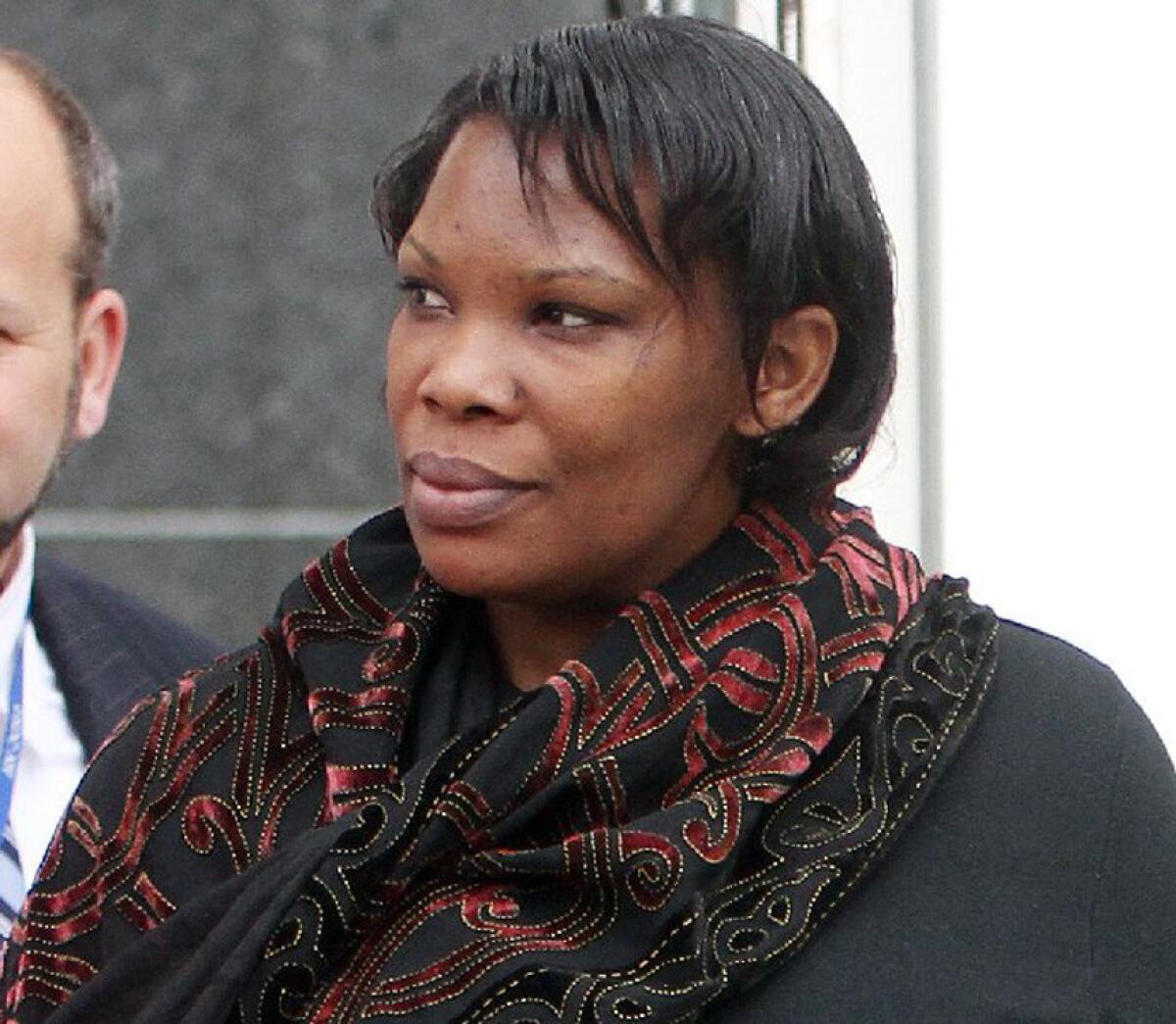New Hampshire woman sentenced in Rwanda genocide case

CONCORD, N.H. — A New Hampshire woman who lied about her role in the 1994 Rwanda genocide has been sentenced to 10 years in prison, a fate her lawyers say is tantamount to a death sentence.
Rwanda native Beatrice Munyenyezi remained stoic as U.S. District Judge Steven McAuliffe sentenced her to the maximum prison time. She declined her right to address the court.
Munyenyezi, 43, was convicted in February of entering the United States and securing citizenship by lying about her role as a commander of one of the notorious roadblocks where Tutsis were singled out for slaughter. She also denied affiliation with any political party, despite her husband’s leadership role in the extremist Hutu militia party.
McAuliffe acknowledged she has led a crime-free and productive life since her arrival in New Hampshire in 1998 but said it was a life lived under false pretenses.
Federal prosecutors had sought the maximum prison sentence, saying she’s as guilty as if she wielded the machete herself.
During the 1994 genocide, more than 800,000 Tutsis and moderate Hutus were killed in a campaign of mass murder orchestrated by Hutu extremists.
Munyenyezi’s lawyers say they will appeal her conviction to the 1st Circuit Court of Appeals, a move that is expected to delay deportation proceedings.
Through two trials and the three years since her indictment in 2010, Munyenyezi has remained silent. She did not testify in her first trial in 2012, which ended in a mistrial.
She has spent most of the last three years in custody and apart from her three daughters, ages 18 to 20.
Her lawyers portrayed her as the victim of lies by Rwandan witnesses who never before implicated her through nearly two decades of investigations and trials — even when testifying against her husband and his mother before the International Criminal Tribunal on Rwanda.
Prosecutors maintained that she was a liar who “gamed” the immigration system to fraudulently obtain the “golden ticket” of citizenship. She swore on immigration and naturalization forms that she persecuted no one, had no affiliation with any political party and even cast herself as a victim of the genocide by saying family members “disappeared.”
Munyenyezi fled to Nairobi, Kenya, with her young daughter in July 1994, in the waning days of the genocide. She gave birth to twins four months later. Eventually all four entered the United States as refugees and settled in Manchester with the aid of refugee relief agencies.
Munyenyezi’s husband, Arsene Shalom Ntahobali, and his mother were convicted of genocide, crimes against humanity and war crimes and are serving life sentences.
ALSO:
Civil rights leaders, protesters seek action after Zimmerman verdict
Lawyer says George Zimmerman wants his gun, needs it ‘even more’
Justice Department inquiry into Trayvon Martin slaying remains open
More to Read
Sign up for Essential California
The most important California stories and recommendations in your inbox every morning.
You may occasionally receive promotional content from the Los Angeles Times.








